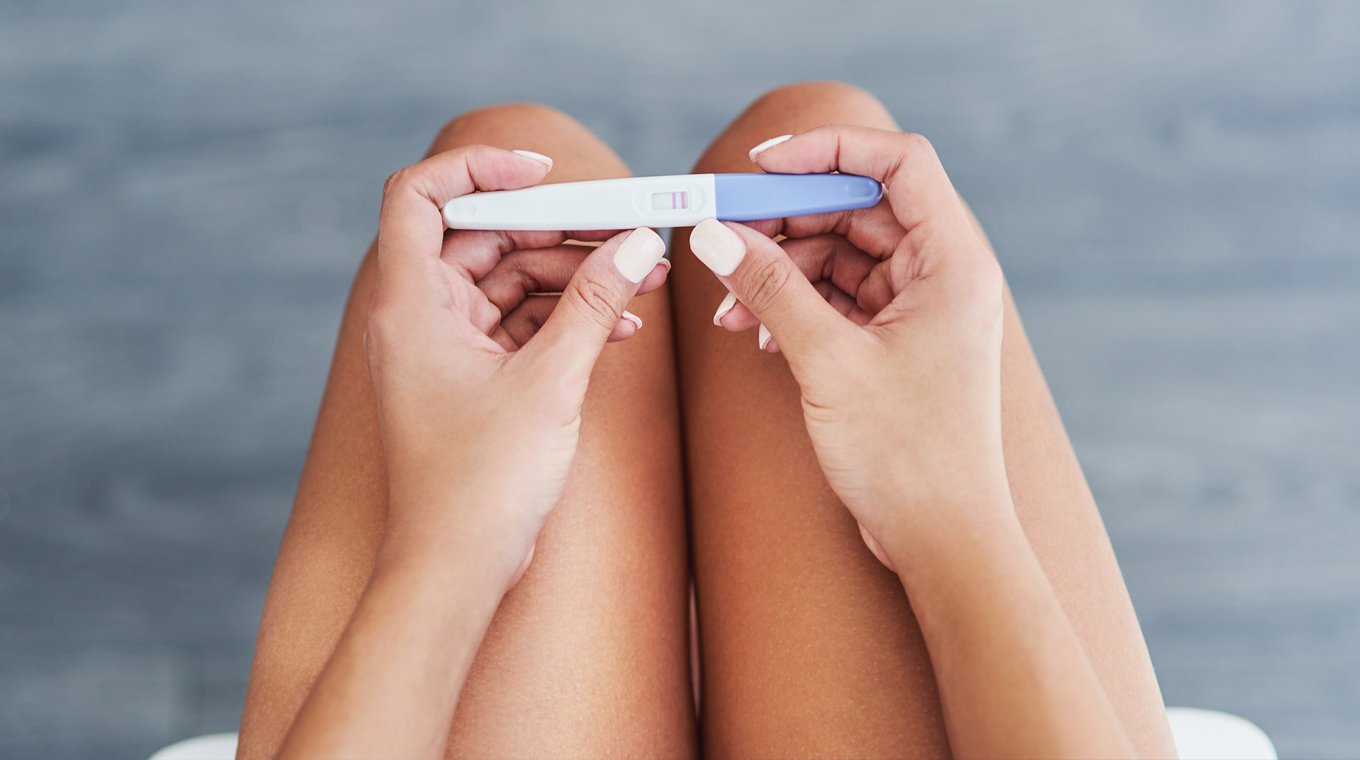
In this article
Whether you’re trying to conceive or you’re panicking after having unprotected sex, that long wait until your next period makes you search for how and when you can take a pregnancy test. Until they invent a test that tells us if we’re pregnant immediately after sex, we’ll have to make do with interpreting the myriad possible early pregnancy signs until we can pee on a stick.
“The breast tenderness was always a tell for me. It was a different type of tenderness than premenstrual,” mom of four Marie Bentley Shaurette told Mom.com.
Early signs that you might need to take a pregnancy test

Dr. Mary Jane Minkin shared with Mom.com some early signals to look out for. “There are some fairly common signs: many women get nauseous, and many women feel fatigued,” said the clinical professor of obstetrics and gynecology and reproductive sciences at Yale University Medical School. “Now, of course, these can mimic PMS type signs — so if you’ve been trying to get pregnant, and are wondering, do the test!”
Here are some early signs of pregnancy:
- Fatigue
- Nausea or motion sickness
- Tingling, tender, or aching breasts
- Mild cramping and spotting
- Missed period
- Frequent urination
- Bloating
- Mood swings
As you can see, since many of the symptoms indicate you could either be pregnant or about to have your period, it may be helpful to see how women actually experience early pregnancy.
“When you’re peeing every two hours at night and you’re getting up constantly, that’s when you know you’re pregnant,” mom of twins and registered nurse Eghe Lenze told Mom.com. She clarified, “Yes, this is before you take the test. That was my signal I was pregnant — the constant peeing in the middle of the night.”
Mom of four Katie Reed shared some super practical advice. “A home pregnancy test rarely gives a false positive and is a great first indicator,” she told Mom.com. “A doctor can verify, but chances are that if you get a home test to say yes, you’re pregnant. Your body can have lots of other signals, but since most of them can be so similar to period symptoms, your most reliable answer is to pee on a stick.”
Keep in mind, pregnancy symptoms vary from pregnancy to pregnancy. I have been pregnant four different times — and each time, the early symptoms were just different enough to make me question everything. It doesn’t get easier or less nerve-racking! (Either that or I’m really dense!)
Types of pregnancy tests

iStock
There are two types of pregnancy tests and both test for the presence of hCG (human chorionic gonadotropin), a hormone produced by the placenta after implantation. One type tests for hCG in blood, and the other type uses urine (home pregnancy tests).
Blood tests
Blood tests can determine if you are pregnant around six to eight days after you ovulate. The quantitative blood test (beta hCG test) measures the exact amount of hCG in your blood and is extremely accurate because it can detect even tiny amounts of hCG in your bloodstream. The qualitative blood test looks for the presence of hCG so if the hCG levels aren’t high enough, it’s possible for the qualitative blood test to come back negative — even if you are pregnant.
Home pregnancy tests
Home pregnancy tests check for the presence of hCG in your urine and are about as accurate as the qualitative blood tests. If you’re testing before your period, make sure to use your first bladder void after sleeping the night so hCG can build up in the urine. Otherwise, you may not yet have high enough levels of hCG for the test to pick up. Most home pregnancy tests work the same way, but make sure you follow the instructions on the box.
“The best way to tell if you’re pregnant is to take a First Response home pregnancy test,” said Dr. Minkin. “It is the most sensitive test and can turn positive 6 days before the first day of the missed period.”
Any positive home test should be followed up with a doctor visit. “Once I was over the initial shock, I made an appointment at my OB-GYN,” said Whitney Cornelison to Mom.com. “I wasn’t sure if the at-home test was accurate.”
What is a chemical pregnancy?

The term “chemical pregnancy” is used to describe a miscarriage occuring before the fifth week of gestation, well before the fetus can be detected on an ultrasound. They affect as many as 75% of miscarriages — and most women do not even realize they were pregnant because they did not yet exhibit any symptoms. Often, they think their period is late and heavier than usual.
While it may be very early, many women still feel devastated after the initial elation of a positive pregnancy test. As with all health advice, please consult your doctor or OB-GYN to determine if you are pregnant.
